Rainy weather prevents many from singing, and we have to get out and search for them visually, or we'd never know they were there. I've seen five magnolia warblers for each one I've heard singing this spring.
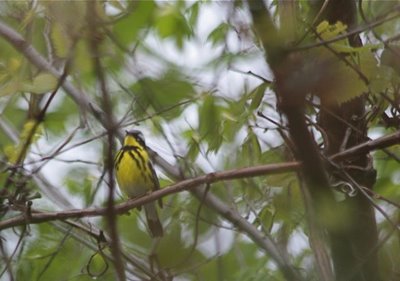
While gardening May 15, I heard not one but two Canada warblers singing from our woods. I threw down the trowel and tromped down there to feast my eyes. I saw one, but never got the lens on him. Next spring...
This blue-headed vireo never said a word as he hopped through the sycamore, but we spotted him anyway.
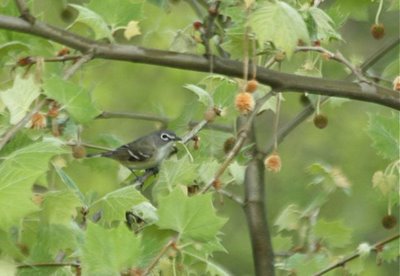
The bay-breasted warbler's weak s'wee s'wee is easily overlooked as emanating from an American redstart, but we've learned to chase the wispy song down.
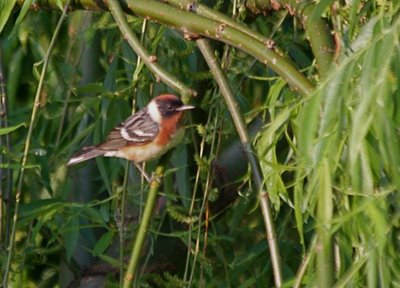
The prize: a designer warbler in rust, buff, black and gray.
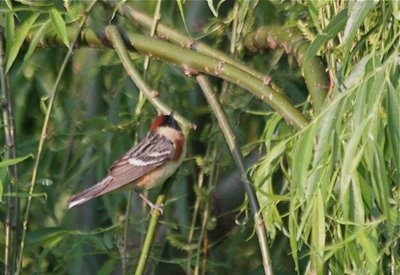
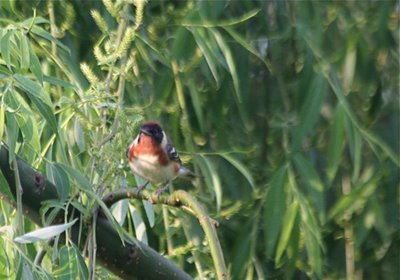
Finally, a decent shot. Morning light is lovely, but it can be harsh, and Bill and I madly twiddle our camera dials looking for the right exposure, while trying to stay on a rapidly flitting warbler.
It ain't easy, but it's really fun.
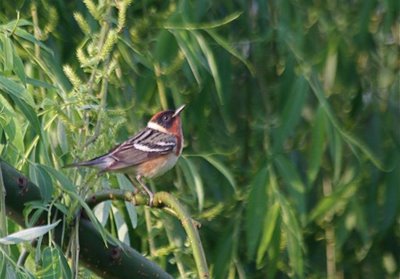
Black-billed cuckoos are raiding the tent caterpillar nests and gathering twigs for their own. They're ridiculously easy to call in using only my voice, imitating their soft tripled coos.
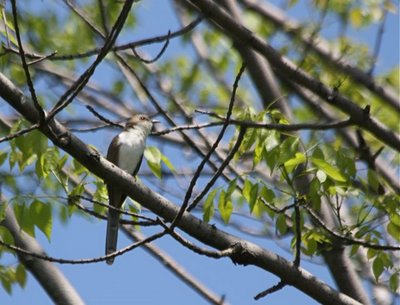
Notice how his tail spots are small and grayish, and how his wings lack the strong rufous of the yellow-billed cuckoo's. There's also that black bill.
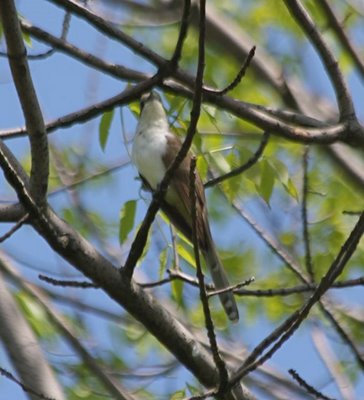 Cuckoos are a lot more common and easier to see than people realize. Or maybe we're just lucky.
Cuckoos are a lot more common and easier to see than people realize. Or maybe we're just lucky.Yes, that's it. Speaking of lucky, we've had orchard orioles nest in our yard only once in 17 years. Each spring I cross my fingers and hope.
A young male belts out his chattery song from a wind-whipped birch. He's olive green with spots of rust, and the famous black "beard."
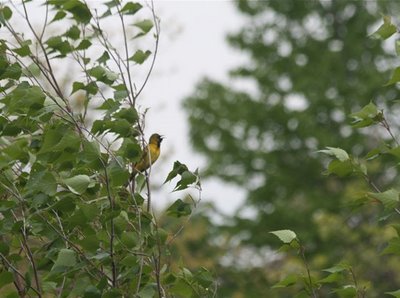 Off he goes, but maybe some spring they'll stay and grace us again. Oh, to have orchard orioles feeding their babies in my vegetable garden once more! A young male was singing in the yard again today. I can hope.
Off he goes, but maybe some spring they'll stay and grace us again. Oh, to have orchard orioles feeding their babies in my vegetable garden once more! A young male was singing in the yard again today. I can hope.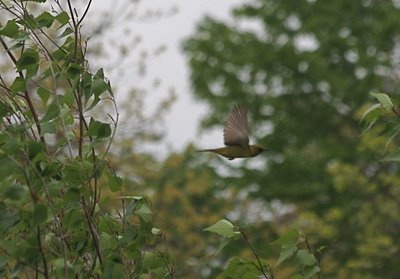
It's another clear, pellucid day, the kind of day when a load of laundry dries in an hour, when I have to water the bonsais twice, when I haul out my 600-foot garden hose to water the lettuce because all the rain that seemed like it would never stop is simply gone. A classic southern Ohio spring. You're drowning, and then you're dry, and that's pretty much it. Not complaining, just sayin'. And loving every minute of it.
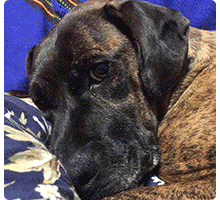




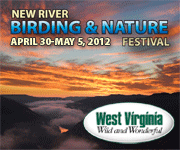
7 comments:
Sheesh--you send me running to my bird IDing website--to look each bird you have passing through.
I live in a majorly suburban area, so have little bird variety here.
(Sigh)
Picture #6 took my breath away. Gorgeous. Thanks for the view from your world.
Beth
I've never seen a bay-breasted warbler but I'm going looking!! Wow! You had a very good bird day.
Hey Julie, I live in country the middle of Ontario near Georgian Bay and a friend saw a bay-breasted warbler in her yard the other day, there is no snow in Canada at the moment though there might be in the Territories, but warblers don't go that far north to nest... Your pictures of all the birds are incredible... love your blog and your website - Barbara (Beastsandbirds) in Canada
Wow, I'm amazed by all the birds you and Bill are able to ferret out of the woods. My hearing impairment is a decided disadvantage in hearing and recognizing birds, so I rely mostly on visual. But I was graced with a rose-breasted grosbeak earlier this month, perching on my Sycamour as it passed through.
Stefanie
These photos are simply wonderful. I'm a native Buckeye, but from the opposite corner of Ohio as you, the land west of Toledo that should have been (and for eons was) the Great Black Swamp and deciduous wetland. When I was growing up there, pesticides and monoculture had already wreaked havoc, and bird varieties were low. But in recent trips back, I've heard some birds, like a killdeer, that I never heard as a child. Maybe environmental awareness and cleanup efforts are making a difference. I hope so.
Oh, Julie. What a knockout that bay-breasted warbler is! I love the look at the Ohio spring you have been giving us. Here in Seattle in our small, urban yard thickly planted with natives we have nesting bewicks wrens, chestnut-backed chickadees, spotted towhees, and (I hope) Annas hummingbirds. We have lots of other nice birds passing through: warblers, grosbeaks, waxwings, goldfinch, and a daily visit by a sharp-shinned hawk, just checking. Spring is so great.
Post a Comment